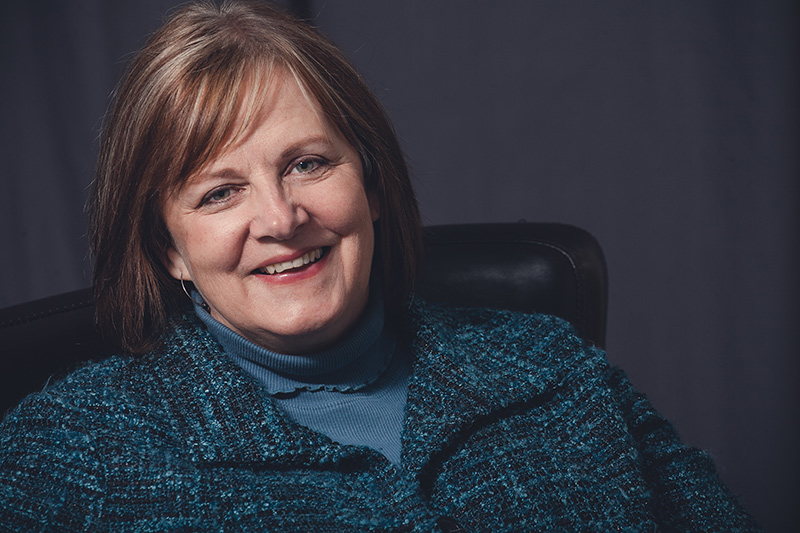Rhoda Cairns, PhD
Assistant Professor of English Literature

The learning life is a life lived on the boundary, a challenging territory where uncertainty and ambiguity can lead to a transformation of understanding, identity, and purpose.
[javascript protected email address] 306.801.4862
Rhoda Teaches:
- Seventeenth-century British literature
- Shakespeare
- World Literatures
- Utopian/Dystopian fiction
- Literature and Religion
- Children's and YA Literatures
Teaching Philosophy
The nurturing of both intellect and spirit that is fostered by the academic process plays an integral role in (re)shaping how we think about and interact with the world in which we live, both its past and its present. The English classroom provides a unique space for transformation as teacher and students engage together in the practices of reading, studying, listening, questioning, and reflecting. We learn to appreciate the nuances of language and metaphor that open up to us only as we spend time with a text; we build interpretive skills that help us look at a variety of texts from multiple angles and evaluative skills that help us weigh the differing readings that result. Integral to this process of "deep reading" is learning to listen to the voices that speak to us from within these texts. While this kind of listening necessarily involves attentiveness to how the literary and rhetorical features of texts shape the voices that speak, it also requires a willingness to enter into the world of the text on its own terms, not as authorities or directors, but as guests, humbling ourselves to listen, to watch, and to learn. I would hope that practising this kind of attentiveness as readers would form in myself and students the capacity to read more carefully the world around us, to make time to listen to the unfamiliar voices we hear, and to encourage those to speak who have been marginalized or silenced.
Background
Although I am a native of Saskatchewan, I have also spent over two decades living in Vancouver and Northern Kentucky, completing my MA and PhD in the U.S. before returning to my "home" province in 2008. While I have always loved reading and learning, my desire to teach was sparked by key professors who modeled excellent teaching and took time to mentor me. I have enjoyed the opportunity Briercrest provides to get to know students both in and beyond the classroom. Outside the academic setting, I enjoy reading, watching films, listening to music (especially live), spending time with friends, and checking out Facebook for the latest pictures of my first grandchild.
Education
PhD (English), Miami University (Ohio), 2008
MA, Xavier University (Ohio), 1997
Graduate studies, Regent College, 1993-94
Graduate studies, University of Regina, 1981-83
BA (Honours), University of Regina/Campion College, 1981
Research
Early modern British literature
Early modern women writers
Literature and religion
Composition studies, particularly first-year writing
Publications
- Review of Claiming our Callings: Toward a New Understanding of Vocation in the Liberal Arts. Ed. Kaethe Schwehn and L DeAne Lagerquist. (Oxford, 2014)
- International Journal of Christianity & Education 20 (2016): 69-70.
- Review of A Kind of Perseverance, by Margaret Avison. Journal of Education & Christian Belief 15 (2011): 168-69.
- Review of Exploring Worldview in Literature: From William Wordsworth to Edward Albee, by Laura Barge, and The Word in the English Classroom: Best Practices of Faith Integration, eds. Jamie Dessart and Brad Gambill. Journal of Christian Education 52 (2009):53-55.
- "The Protean Shape of the WA's Role: An Empirical Study and Conceptual Model," with Paul Anderson. Writing Fellows special issue. Online in Across the Disciplines, March 28, 2008.
- Review of Dramatic Difference: Gender, Class, and Genre in the Early Modern Closet Drama, by Karen Raber. Women's Studies 33 (June 2004): 551-553.
- "Revisiting College Composition Within a Local 'Culture of Writing.'" Diana Royer, Moira Amado Miller, Meredith A. Love, Jennie Dautermann, Mary Jean Corbett, Rhoda Cairns, Parag K. Budecha, Journal of the Council of Writing Program Administrators 26.3 (Spring 2003): 28-48.
